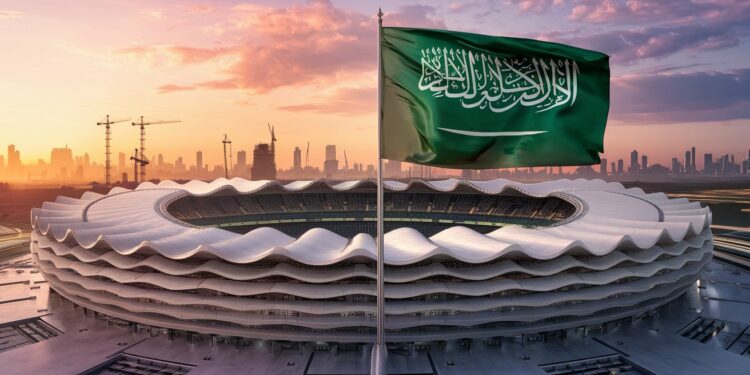The global football community is abuzz with the news that Saudi Arabia has secured the hosting rights for the 2034 FIFA World Cup. While celebrated by some as a milestone for Middle Eastern football, the decision has sparked intense debate and scrutiny. As the dust settles, pressing questions emerge about Saudi Arabia’s motivations, its readiness to meet FIFA’s standards, and the potential implications for human rights and the beautiful game itself.
The Saudi Vision: Beyond the Pitch
For Saudi Arabia, hosting the World Cup represents far more than a mere sporting event. It is a key pillar of Vision 2030, the kingdom’s ambitious plan to diversify its economy and boost its global reputation. By welcoming the world’s most popular sporting spectacle, Saudi Arabia aims to:
- Showcase its modernization efforts and cultural reforms
- Attract foreign investment and tourism
- Solidify its status as a regional powerhouse
- Improve its international image and soft power
According to a close source, “The World Cup is a crucial piece of the puzzle for Saudi Arabia. It’s about much more than football – it’s a chance to redefine the nation’s identity on the global stage.”
Sportswashing Concerns
Critics, however, view Saudi Arabia’s World Cup bid through a more skeptical lens. They argue that the kingdom is engaging in “sportswashing” – using the glamour of elite sport to distract from its troubling human rights record. Key areas of concern include:
- Migrant worker rights: With large-scale stadium construction projects on the horizon, fears abound over the potential exploitation of migrant laborers, echoing the controversies surrounding Qatar’s World Cup preparations.
- Women’s rights: Despite recent reforms, women in Saudi Arabia still face significant restrictions and discrimination, raising questions about how welcoming the tournament will be for female fans and journalists.
- LGBTQ+ rights: Homosexuality remains illegal in Saudi Arabia, casting a shadow over the World Cup’s promise of inclusivity and tolerance.
- Political prisoners: Human rights organizations point to the ongoing detention of activists and dissidents as a worrying sign of the kingdom’s intolerance for dissent.
“Awarding the World Cup to Saudi Arabia sends a troubling message that sports can be used to launder a country’s reputation, no matter how grave its human rights abuses.”
– Human Rights Advocate
The Bidding Process: Transparency in Question
Equally contentious is the bidding process that led to Saudi Arabia’s selection. Critics argue that FIFA’s decision-making remains opaque, despite promises of reform in the wake of previous corruption scandals. Key concerns include:
- Lack of public voting records and selection criteria
- Potential conflicts of interest among FIFA officials
- Insufficient consultation with stakeholders and human rights groups
- Inadequate assessment of human rights risks and mitigation plans
As one former FIFA official put it, “The bidding process still operates too much in the shadows. Without full transparency, it’s hard to have faith that the best interests of football and human rights are being served.”
The Global Response: A House Divided
Reactions from football associations worldwide have been mixed. Some have congratulated Saudi Arabia and expressed enthusiasm for an Arab World Cup, citing the successes and festive atmosphere of Qatar 2022. Others, however, have voiced grave reservations, with a few even threatening boycotts.
“We cannot in good conscience participate in a World Cup that rewards a nation with such a dismal human rights record. Our values must come before football.”
– European FA President
Amid these polarized reactions, some argue that a Saudi World Cup could serve as a catalyst for positive change, much as the 2022 tournament spurred labor reforms in Qatar. They believe that engagement, rather than isolation, is the path to progress.
An Asian football official remarked, “The World Cup has the power to shine a global spotlight on Saudi Arabia. If managed responsibly, it could incentivize meaningful reforms and open up the kingdom to the world in transformative ways.”
Navigating the Geopolitical Pitch
As the debate rages on, it is clear that Saudi Arabia’s World Cup aspirations cannot be divorced from the complex geopolitics of the Middle East. The kingdom’s regional rivalries, especially with Qatar and Iran, add another layer of intrigue to an already contentious issue.
Some analysts suggest that Saudi Arabia sees the World Cup as a chance to eclipse Qatar and cement its status as the premier Arab nation. Others worry that the tournament could become a flashpoint for regional tensions, with boycott threats and fan clashes looming on the horizon.
A Middle East expert cautioned, “The 2034 World Cup has the potential to be a unifying force for the region, but it could also exacerbate long-standing divisions. FIFA and Saudi Arabia must tread carefully and prioritize diplomacy alongside their preparations.”
The Road Ahead: Kicking Off the Conversation
As Saudi Arabia celebrates its historic World Cup bid, it is clear that the real work is just beginning. To deliver a successful and inclusive tournament, the kingdom must:
- Engage transparently with FIFA, human rights groups, and other stakeholders
- Develop robust plans to protect migrant workers and expand rights for women and minorities
- Invest in infrastructure and logistics to meet FIFA’s exacting standards
- Foster a spirit of openness, tolerance, and hospitality for fans from all walks of life
Only by confronting these challenges head-on can Saudi Arabia hope to win over its critics and deliver a World Cup that lives up to the ideals of the beautiful game. As the world watches and the countdown begins, the kingdom has a once-in-a-generation opportunity to showcase its progress and potential – but it will take more than a glittering new stadium to truly score a victory for football and human rights.








